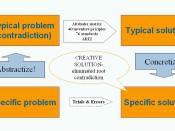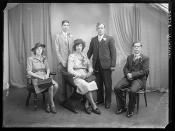Social Workers are recognized for using interpersonal relationships in a helping process. Central to practice are problem solving, goal setting and task defining (McMahon 1996, 13). So giving advice and solving problems are not necessarily a priority when counselling and in many cases, it may be more effective for a counsellor to not give advice at all. Many experts in the field assume that solutions are more beneficial to a client, if they come to the conclusion themselves. Another reason why a counsellor may not give advice is because there are many disadvantages to the client if a counsellor provides solutions to their problems. Even if the consequences are positive, the long-term effects may end up being negative. In contrast, it is not always wrong to give advice. In some situations advice can benefit a client to a great extent. When it seems appropriate to give advice to a client, many factors need to be thought through in detail.
Advice then needs to be given carefully, as the counsellor's status may influence the decision of whether or not the client to takes up the advice offered.
Social workers often resist giving direct advice because of their reluctance to tell the client what to do. Social workers are much more comfortable with an enabling role, which attempts to help clients determine what to do for themselves (Compton, Galaway 1994, 466). There are genuine disadvantages to the client if a counsellor gives advice and provides solutions to problems (Geldard 1998, 3). Particular situations where solutions to a client's problem may cause disadvantage are; that clients actually often resist advice, so the well thought out advice may not even be taken up. Even if the client follows the advice offered, there is risk that the advice will have a negative effect. If the...


